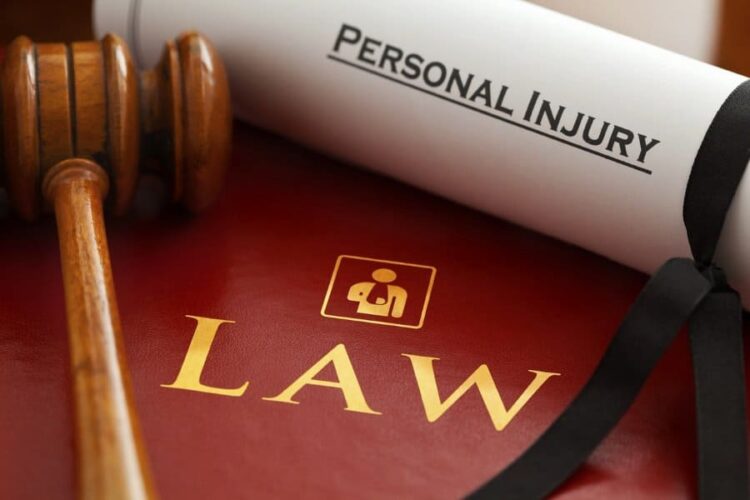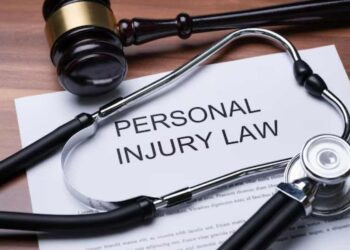Entering the next phase of their legal journey, victims of personal injuries often feel a combination of suspense and anxiety as their day in court quickly approaches. As someone preparing to testify in your personal injury trial, this uneasiness is perfectly understandable. The testimony’s outcome could significantly influence your life trajectory.
A top injury lawyer is crucial to helping you deliver a compelling testimony and present your facts effectively to secure the best possible outcome. This blog post provides essential tips to help you adequately prepare, maintain composure, and effectively communicate your story to the judge and jury during your personal injury trial.
Know What To Expect
Before testifying, talk with your lawyer about what will happen during the trial. This includes information on how long it will take and what questions you can expect from the opposing counsel. Knowing what to expect gives you time to mentally prepare for the testimony.
Dress Appropriately
When attending a personal injury trial, first impressions matter. You should dress appropriately when appearing before a judge or jury. Dress neatly and conservatively without being too casual or too formal.
Be Honest
Honesty is crucial when giving testimony at trial, so be honest with your answers, even if they’re not always favorable to your case. Avoid exaggerating details since it might backfire against you later on.
Stick To The Facts
To present an accurate picture of the events leading up to the accident, it is best to avoid confusion and potential negative effects on judgment. Stick to known facts and include all relevant details about the accident. Using drawings to illustrate the locations of incidents and promptly taking photos (if suitable) could be beneficial.
Practice Makes Perfect
This phrase may sound cliché, but practicing witness statements goes a long way here. This means re-reading all relevant documents weeks prior, the night before testing day, and rehearsing multiple times. Memorizing exact dates and time sequences minimizes contradictions between statements made during cross-examination.
Asserting opposing opinions offers convincing reasons to make anyone listening think twice. The more practice done beforehand, the less chance of slight anxiety patterns presenting falsehoods. Getting comfortable expressing testimonies aloud sooner decreases the chances of them coming off as conflicting, inevitably weakening credibility. Properly prepared statements can be pivotal in your case, particularly when punitive damages are considered.
Answer Only What Is Asked
Answering questions that one hasn’t asked increases the risk of contradicting oneself. During the trial, answers must only be based on directed inquiries. This means that when you’re unsure or don’t know the answer to a question, say so rather than assuming something.
Speak Clearly
Communication plays a significant role in how people understand and interpret what is said in court proceedings. A clear oral presentation leaves no room for misinterpretation, allowing the listener to present detailed information confidently. Loud enough tone penetration is required to ensure all parties can hear properly while providing any further repetition that doesn’t slow down proceedings and evoke unnecessary frustration from any forced repetition.
Keep Your Emotions Under Control
It is completely understandable if testifying brings up traumatic memories. Therefore, you must stay measured, responding rationally regardless of exposing emotions. Maintaining composure demonstrates professionalism, focus, and stress-handling abilities.
Never threaten opposing counsel, judges, or anyone else. Be respectful by addressing others as Mr. or Mrs. and avoiding getting drawn into direct argumentative discussions, therefore keeping yourself favorably seen by the judge or jury.
Stay On Point
Answering only within the scope of the question at hand helps to prevent diluting the message and maintains clarity. The credibility of important witnesses is diminished when divergence-offs are avoided. A more concise argument increases the likelihood that a judge will accept the presented assertions.
Conclusion
Giving testimony in a personal injury trial can have a significant impact, so take it seriously. Exude professionalism without disclosing more than is required by law. Remember the importance of focusing on facts and expressing them calmly and respectfully. Listen carefully and follow the right protocol.
If you have any reservations about the upcoming day, feel free to seek the advice of a legal professional. Convictions are strengthened by carefully presenting information. It is critical not to resort to lying under oath simply because of the greater chances of it working against the case but rather to allow honesty to guide everything spoken, leading to justice being served.










